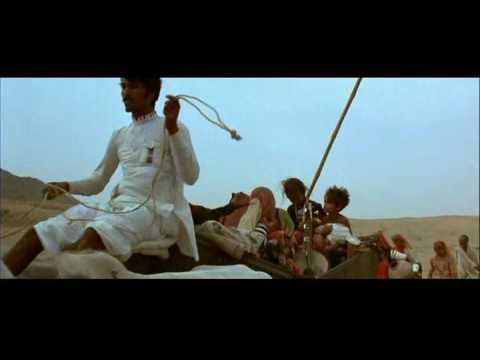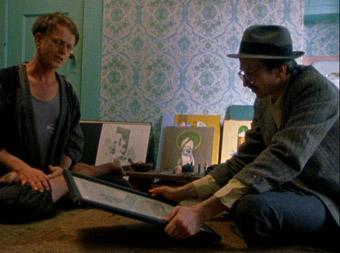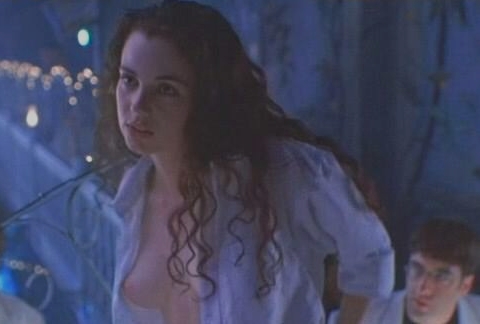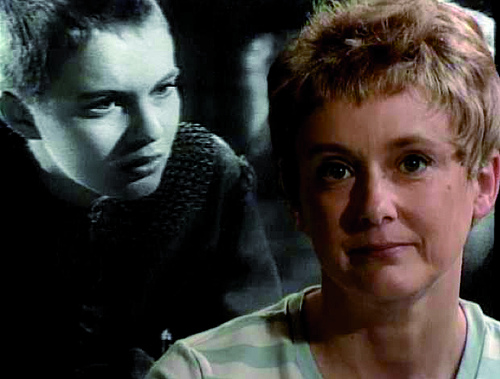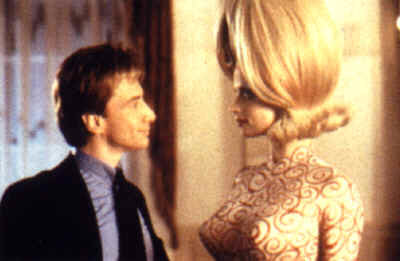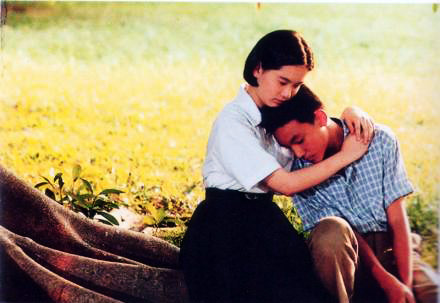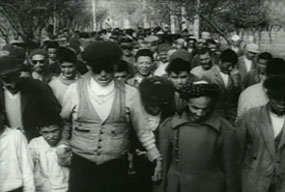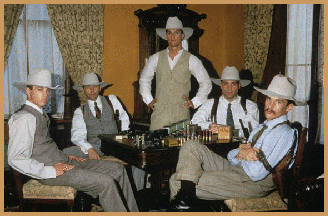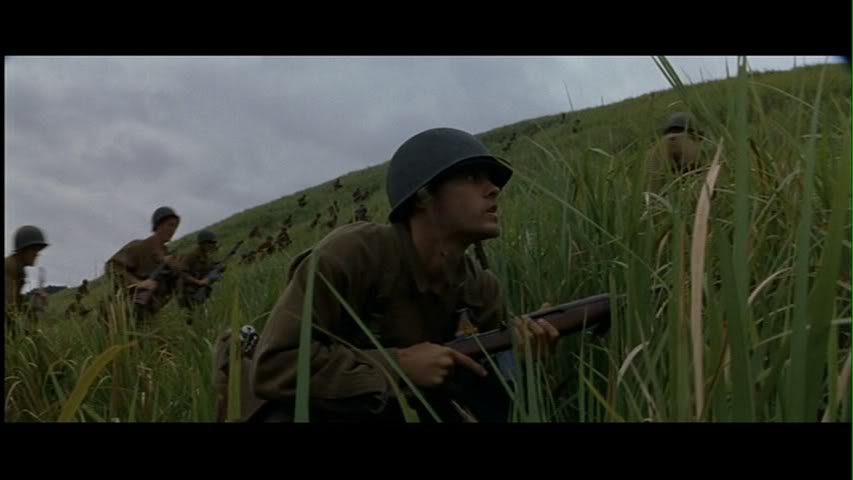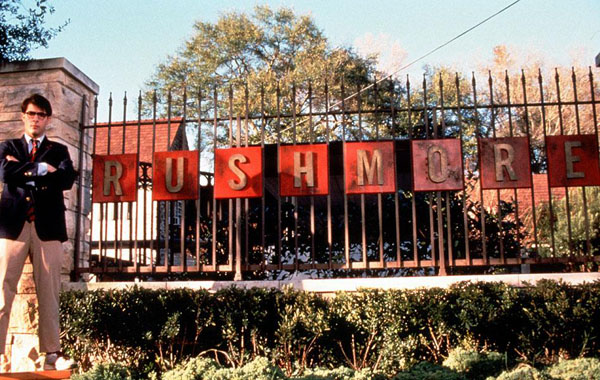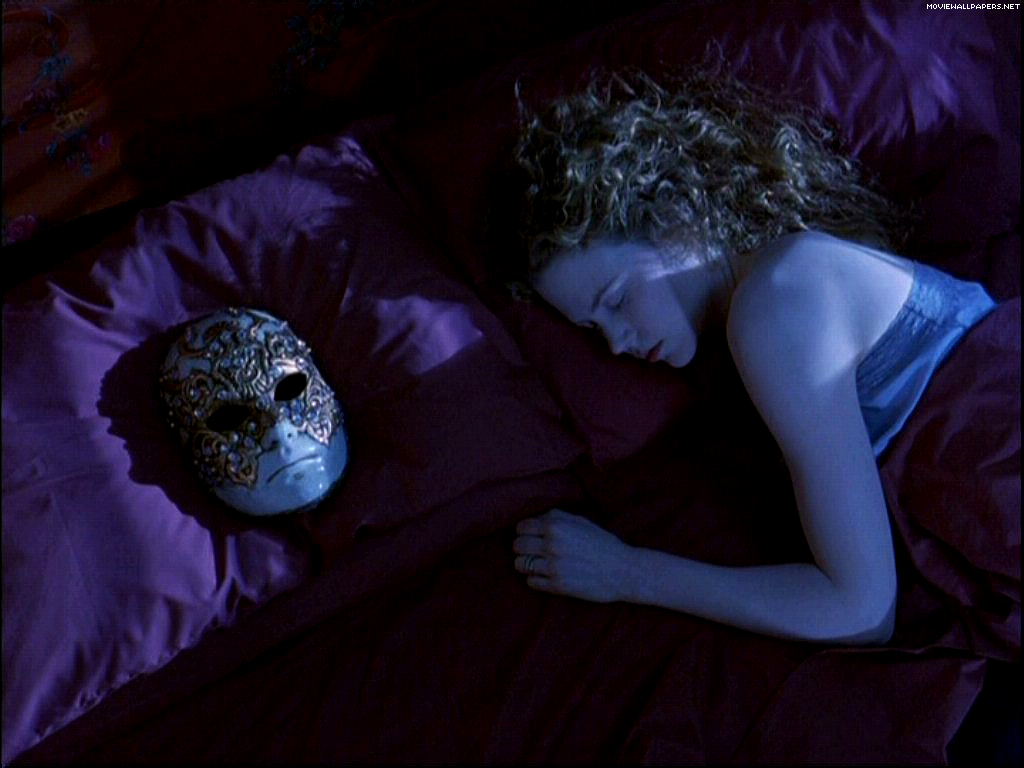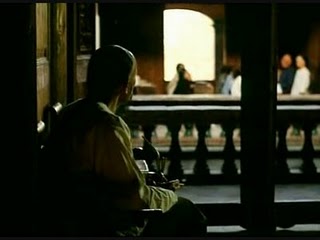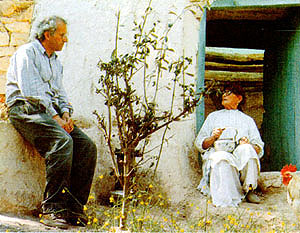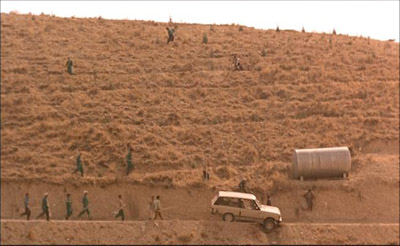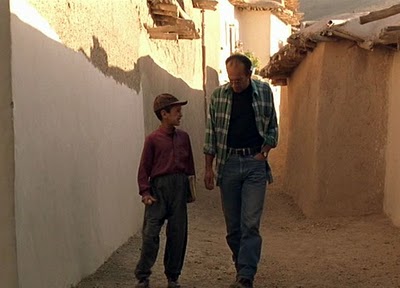This is third in an ongoing series of five lists of lists. –J.R.
Chicago Reader, 1995:
Latcho Drom (Tony Gatlif)
Crumb (Terry Zwigoff)
A Great Day in Harlem (Jean Bach) + When It Rains (Charles Burnett)
Lamerica (Gianni Amelio)
Good Men, Good Women (Hou Hsiao-hsien)
Safe (Todd Haynes)
Germany Year 90 Nine Zero (Jean-Luc Godard)
Exotica (Atom Egoyan)
Hyenas (Djibril Diop Mambety)
Up Down Fragile (Jacques Rivette)
Chicago Reader, 1996:
Dead Man (Jim Jarmusch)
The Asthenic Syndrome (Mira Kuratova)
The Decalogue (Krzysztof Kieslowski)
Nightjohn (Charles Burnett)
The Neon Bible (Terence Davies)
Regularly or Irregularly (Abbas Kiarostami) + From the Jounals of Jean Seberg (Mark Rappaport)
Thieves (André Téchiné) + My Favorite Season (André Téchiné)
The White Balloon (Jafar Panahi) + Goodbye South, Goodbye (Hou Hsaio-hsien)
Blush (Li Shaohong) + Red Hollywood (Thom Anderson & Noël Burch)
Flirt (Hal Hartley) + Deseret (James Benning)
Sling Blade (Billy Bob Thornton) + Joan the Maid (Jacques Rivette)
Secrets & Lies (Mike Leigh) + Basquiat (Julian Schnabel)
Get on the Bus (Spike Lee) + Chungking Express (Wong Kar-wai)
Mars Attacks! (Tim Burton) + The Cable Guy (Ben Stiller)
When Pigs Fly (Sara Driver) + Desolation Angels (Tim McCann)
Stealing Beauty (Bernardo Bertolucci) + My Life and Times With Antonin Artaud (Gérard Mordillat)
Ectasy (Mariano Barroso) + Vive l’Amour (Tsai Ming-liang)
Cyclo (Tran Anh Hung) + Breaking the Waves (Lars von Trier)
2 X 50 Years of French Cinema (Anne-Marie Mièville & Jean-Luc Godard) + The Crucible (Nicholas Hytner)
A Family Thing (Richard Pearce) + Nelly and Monsieur Arnaud (Claude Sautet)
Yang and Yin: Gender in Chinese Cinema (Stanley Kwan) + Red Lotus Society (Stan Lai)
Foxfire (Annette Haywood-Carter) + Bottle Rocket (Wes Anderson) + Trainspotting (Danny Boyle)
Chicago Reader, 1997:
A Brighter Summer Day (Edward Yang)
The House Is Black (Forugh Farrokhzad)
Irma Vep (Olivier Assayas)
The Ceremony (Claude Chabrol)
4 Little Girls (Spike Lee) + Fast, Cheap & Out of Control (Errol Morris)
La promesse (Luc and Jean-Pierre Dardenne)
In the Company of Men (Neil LaBute)
The Sweet Hereafter (Atom Egoyan)
As Good As It Gets (James L. Brooks)
Comrades, Almost a Love Story (Peter Chan)
Chicago Reader, 1998:
Inquietude (Manoel de Oliveira)
Taste of Cherry (Abbas Kiarostami)
The Apostle (Robert Duvall)
Small Soldiers (Joe Dante)
Jour de fête (Jacques Tati)
Public Housing (Frederick Wiseman) + Vietnam: Long Time Coming (Jerry Blumenthal/Peter Gilbert/Gordon Quinn)
Kundun (Martin Scorsese) + Flowers of Shanghai (Hou Hsaio-hsien)
The Apple (Samira Makhmalbaf) + Pleasantville (Gary Ross)
The Newton Boys (Richard Linklater)
Bulworth (Warren Beatty) + A Soldier’s Daughter Never Cries (James Ivory)
Chicago Reader, 1999:
Eyes Wide Shut (Stanley Kubrick)
The Thin Red Line (Terrence Malick)
Rushmore (Wes Anderson)
Divorce Iranian Style (Kim Longinotto & Ziba Mir-Hosseini) + Narita: Heta Village (Shinsuke Ogawa)
I Stand Alone (Gaspar Noe)
The Lovers on the Bridge (Leos Carax)
Besieged (Bernardo Bertolucci) + The Hole (Tsai Ming-liang)
The Lovers of the Arctic Circle (Julio Medem) + Circle’s Short Circuit (Caspar Stracke)
Doctor Akagi (Shohei Imamura) + Mr. Zhao (Lu Yue)
American Beauty (Sam Mendes) + Being John Malkovich (Spike Jonze) + The Sixth Sense (M. Night Shyamalan) +Three Kings (David O. Russell)
Chicago Reader, Best Films of the 1990s (chronological):
Actress (aka Center Stage; aka Ruan Ling Yu)(Stanley Kwan, 1991)
A Brighter Summer Day (Edward Yang, 1991)
Dead Man (Jim Jarmusch, 1995)
Eyes Wide Shut (Stanley Kubrick, 1999)
From the East (aka D’est) (Chantal Akerman, 1993)
Inquietude (aka Anxiety) (Manoel de Oliveira, 1998)
The Puppetmaster (Hou Hsiao-hsien, 1993)
Satantango (Béla Tarr, 1994)
When It Rains (Charles Burnett, 1995)
The Wind Will Carry Us (Abbas Kiarostami, 1999)
Artforum (December 1999), Best Films of the 1990s:
“Abbas Kiarostami’s Life, and Nothing More (1991), A Taste of Cherry (1997), and The Wind Will Carry Us (1999). Three prodigiously beautiful features that redefine cinematic economy — in several different ways at once.”

